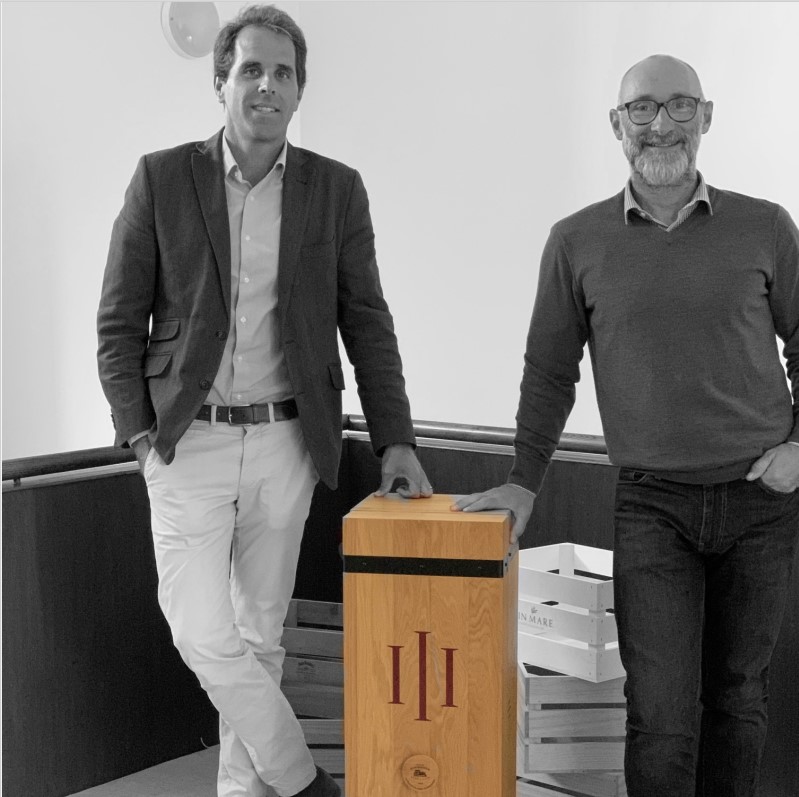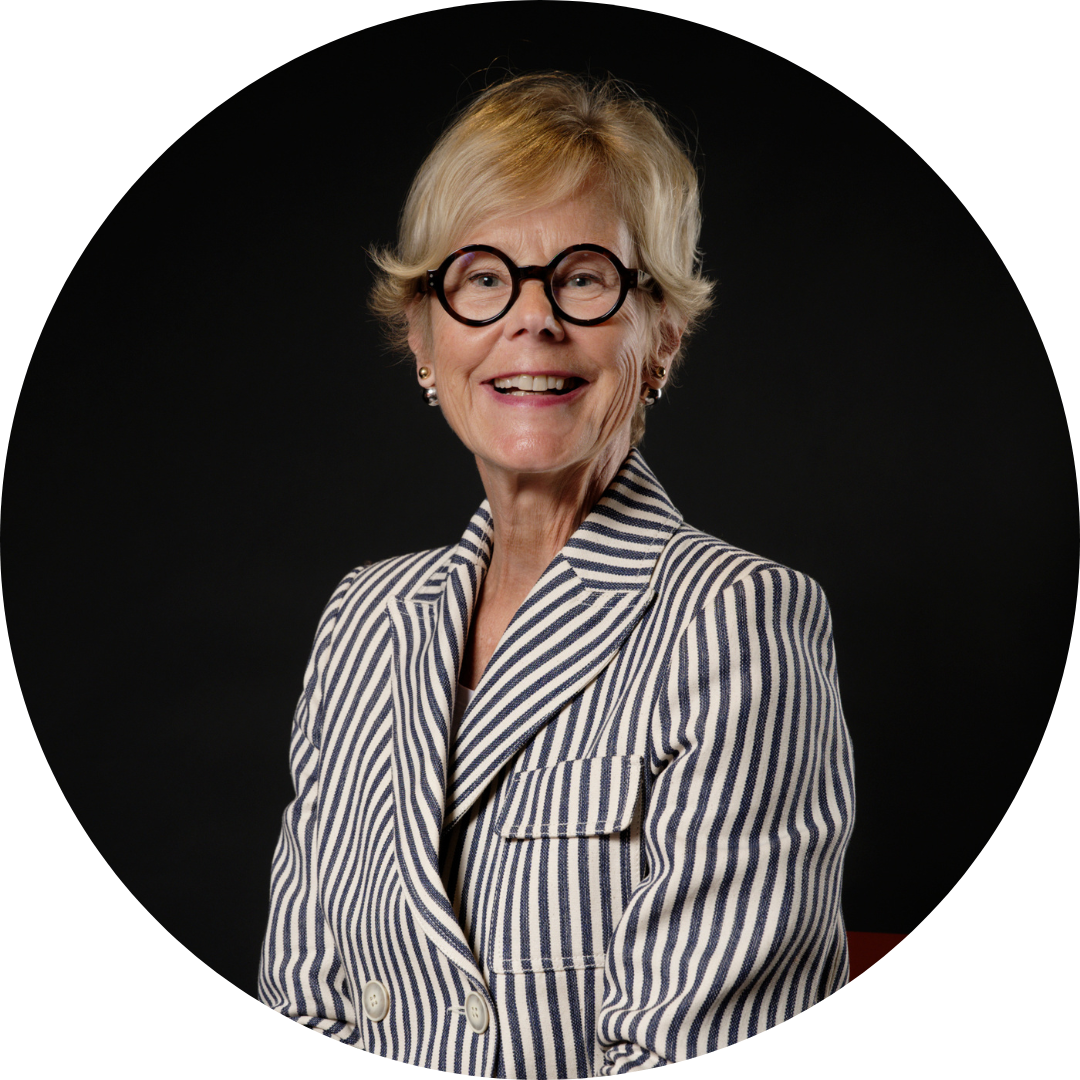Thibault Chaperon
General Manager, Caisserie Bordelaise Group
Frédéric Argagnon
Sales Manager
Nine producers, mainly from the Gironde region, representing 90% of French production in this sector, have joined forces to form the Alliance France Caisse Bois (AFCB) association. Their aim is to gain “a little recognition” and “put the wooden case, and its assets and qualities, back at the heart of discussions”. Here I ask a few questions to Thibault Chaperon, vice-president of the AFCB and managing director of the Caisserie Bordelaise group, to give you a better idea of how the caisserie is coping with the challenges of today’s market, what its adaptation strategies are, and what prospects it sees for the future.
Alliance France Caisse Bois
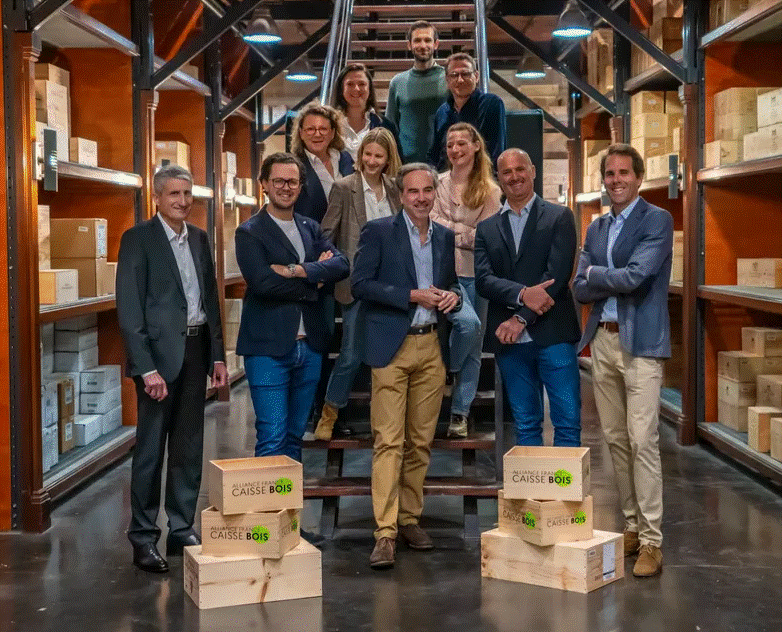
Gerda : Why did you create the Alliance France Caisse Bois?
Thibault Chaperon: To federate and communicate together. We’re keen to bring our industry into the spotlight, to show that wood is a virtuous, natural product that is part of a cycle, though it can’t be recycled, at least not yet. We want to go further in the regulatory framework, by approaching local authorities, the French government and the CIVB, who still prefer cardboard, to change the way people look at wooden cases. We need to defend our product, which is part of a historic, traditional and artisanal industry. It has its place and its raison d’être. We’re part of the wine industry, which is one of France’s jewels. It must be protected, and we have a role to play in this.
Presentation
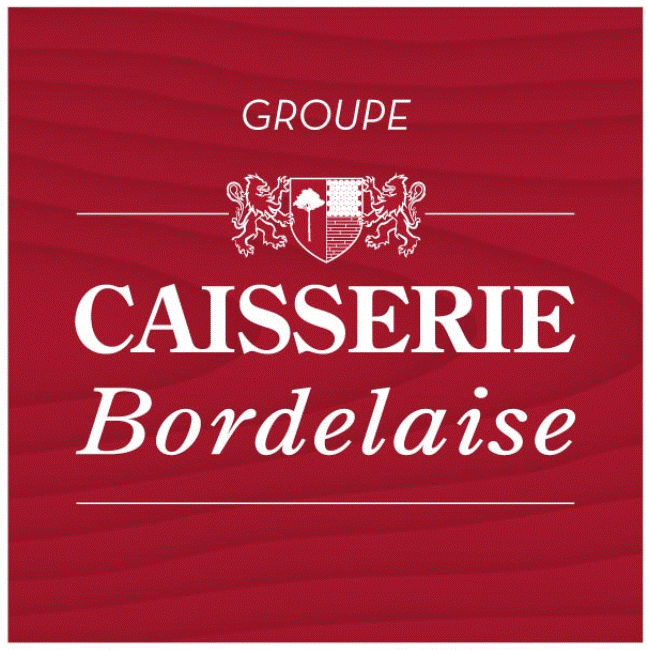
G: What are the main challenges you’re facing at the moment?
TC: Our main challenge is to explain our product, which remains very traditional and artisanal. We need to inform people about the production process, especially taking into account the ecological concerns of our customers, such as châteaux and merchants. There are a lot of untruths about our products, so we need to promote our know-how and show the ecological aspect of our wooden cases. In the wine sector, two types of packaging dominate: cardboard, which represents 98% of the market, and wooden cases, only 2%. We want to promote the sustainability of wooden cases. It’s a product based on renewable raw materials, since we use mature trees from sustainably managed forests. Every tree cut down is replaced by a new one, and we are certified by the Programme for the Endorsement of Forest Certification (PEFC). Unlike cardboard, for which pulp is used, wooden cases use less energy and are more respectful of the environment.
G: Do you only use pines over 50 years old?
TC: The majority of the pines we use are indeed over 50 years old, because we need pines of a certain diameter to make the cases. We harvest end-of-life trees to preserve the forest and allow the regeneration of new pines that will capture carbon. We use only renewable woods from the Landes forests (France), Spain and Portugal.
Production & Supply
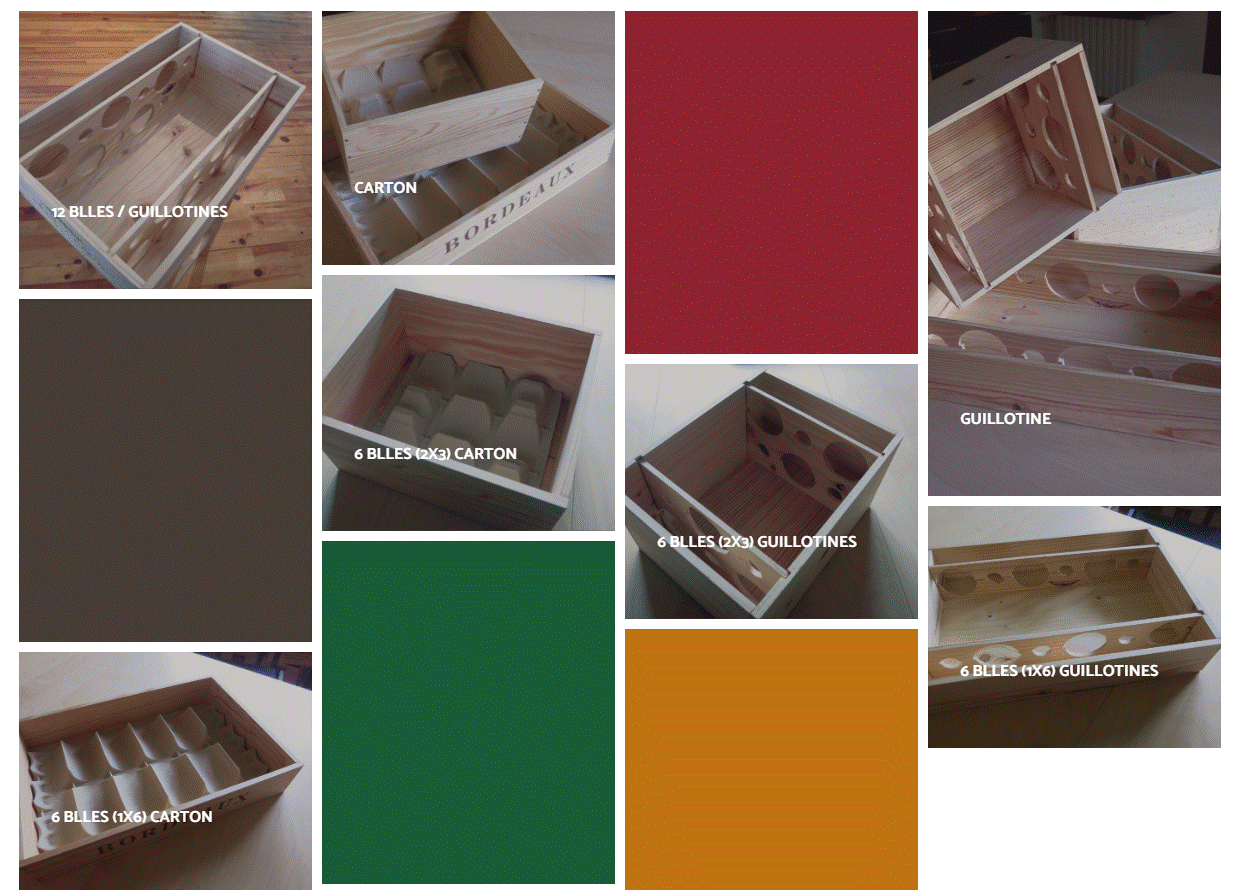
G: Is it still cheaper to import Spanish wood?
TC: The price gap still exists, especially for more complex products. In France, the big sawmills haven’t invested in the wooden case niche, unlike in Spain, where sawmills are very reactive and send 6 to 7 trucks a week.
G: Does transport also have an impact on your carbon footprint?
TC: It’s true, but each truck carries up to 30,000 case kits, which optimizes transport. In France, the calculation of the carbon footprint does not include carbon capture by wood; and we remain on a very energy-efficient product. The wooden case offers many advantages: it ensures safety during transport, and offers protection against light and possible variations in temperature and humidity. We’ve seen some Grands Crus switch to cardboard, claiming that it’s more environmentally friendly, which is not entirely true. Cardboard is often thrown away, especially in countries that are not yet adapted to recycling. If you want a high-end carton, it can’t be recycled because it contains chemicals.
Environmental Perspective
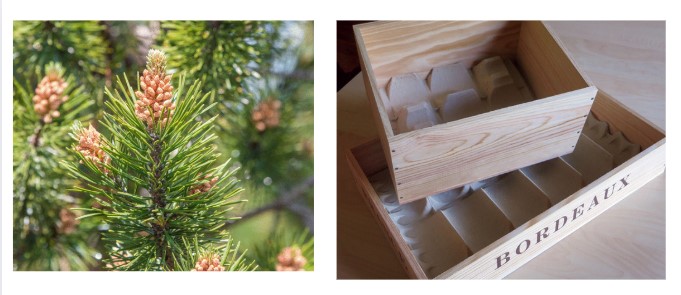
G: How do you communicate the ecological aspect of your products?
TC: Wooden cases consume less water and do not require food resources such as starch, which are necessary for cardboard. Paper pulp is not necessarily produced in France. These are factors that need to be taken into account. Unlike cardboard, only part of which is recycled, our cases can be recycled and reused. For the opening of the opera season, as patrons of the arts, we placed 1,500 cases in the square in front of the theater to be used as seats. At first, the council said to us, “How are we going to get them back?” I replied: “You’ll see, in a minute, everyone will pick up their cases and take it home. Who hasn’t picked up a cases and used it for storage?” A few years ago, a survey showed that around 35% of wooden boxes are reused. That’s what we call recycling. We want to promote the idea of recyclability alongside that of reusability.
Market challenges
G: So your main challenge is communication in the face of CSR requirements?
TC: Yes, it’s a major challenge. In addition, it’s essential to keep up with our long-standing customers while innovating to offer them new products, unique markings, and economical solutions despite cost increases. We had to increase our prices by 45%, following the post-covid period, but we now offer thinner cases to lighten the financial burden.
Innovation & Future Prospects
G: Are you working on new products? For example, the traditional Bordeaux case, which is nailed down, is difficult to open.
TC: Yes, we offer several opening options, but sturdiness is important to protect the bottles. We’ve worked on over 2,500 different formats, as each château wants to personalize its case, with a choice of woods, markings and even engravings. However, prices can rise quickly for specific orders, and this sometimes limits our possibilities for adding value.
G: According to the AFCB, sales in the industry are down 20%. What are your forecasts?
TC: We are closely linked to the wine market and hope for a recovery. We also work with customers to offer them new products, and provide them with all the support they need to develop their projects, despite the unfavorable economic climate. Our company is 100 years old, and we remain confident despite the current crisis, because a niche market can quickly bounce back.
Gerda BEZIADE has an incredible passion for wine, and possesses a perfect knowledge of Bordeaux acquired within prestigious wine merchants for 25 years. Gerda joins Roland Coiffe & Associés in order to bring you, through “Inside La PLACE” more information about the estate we sell.

